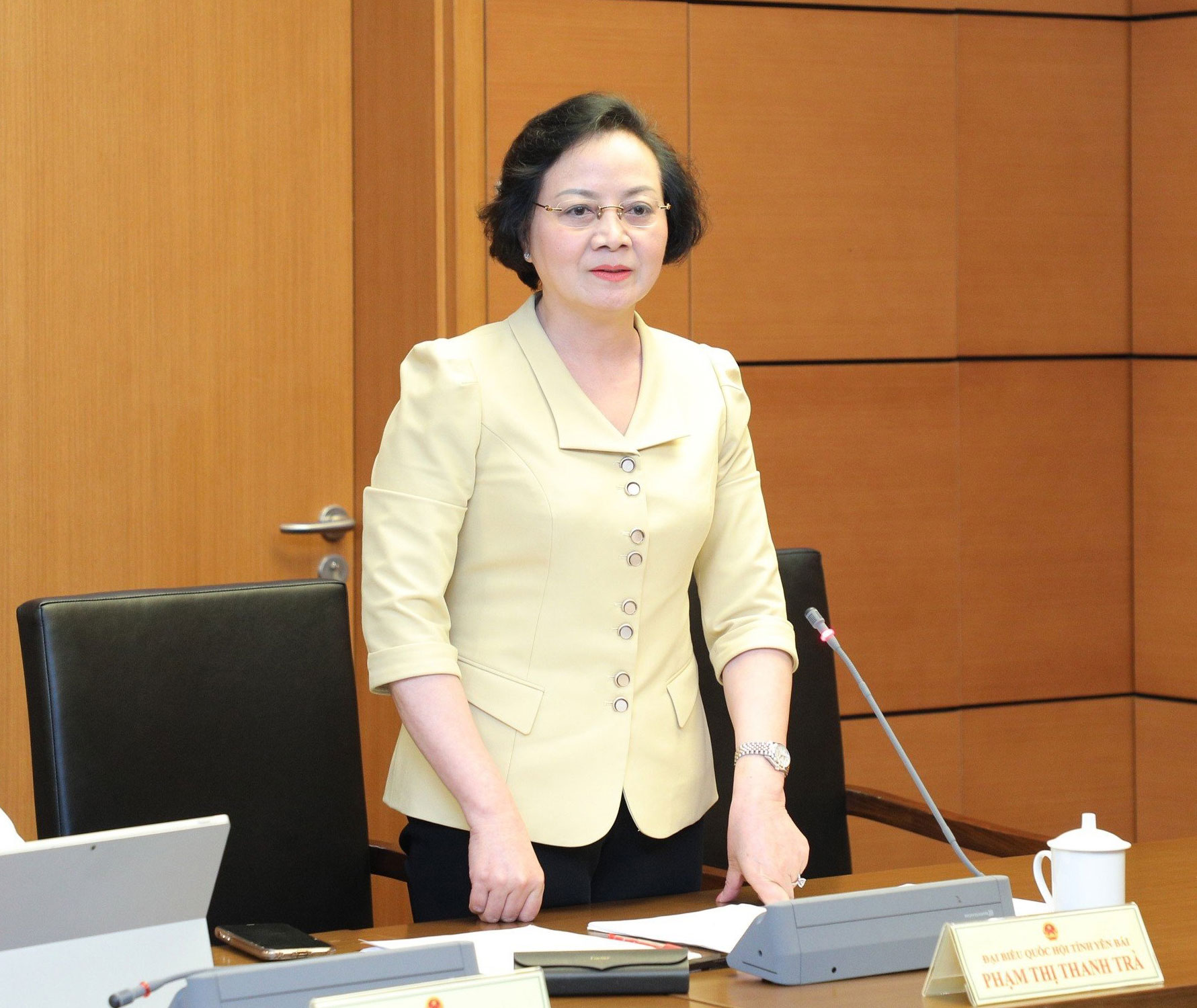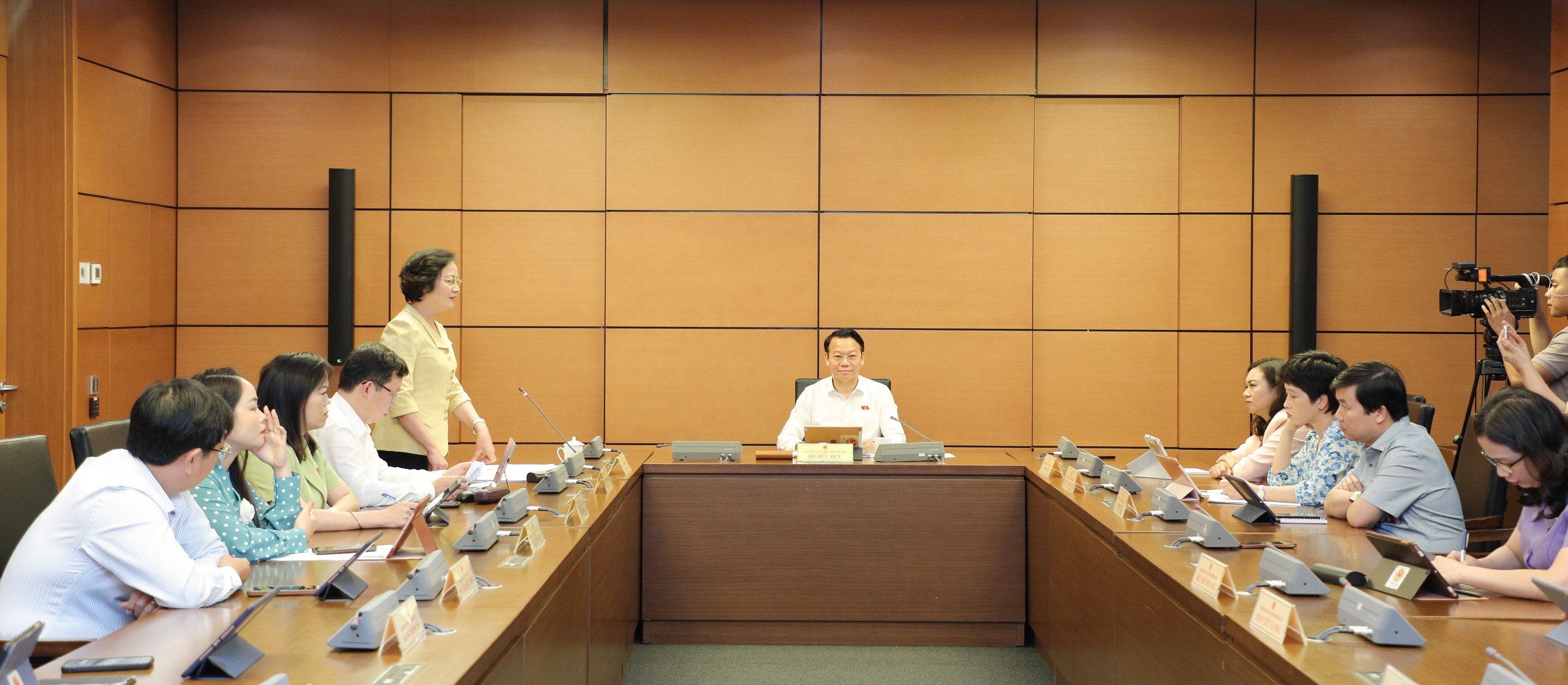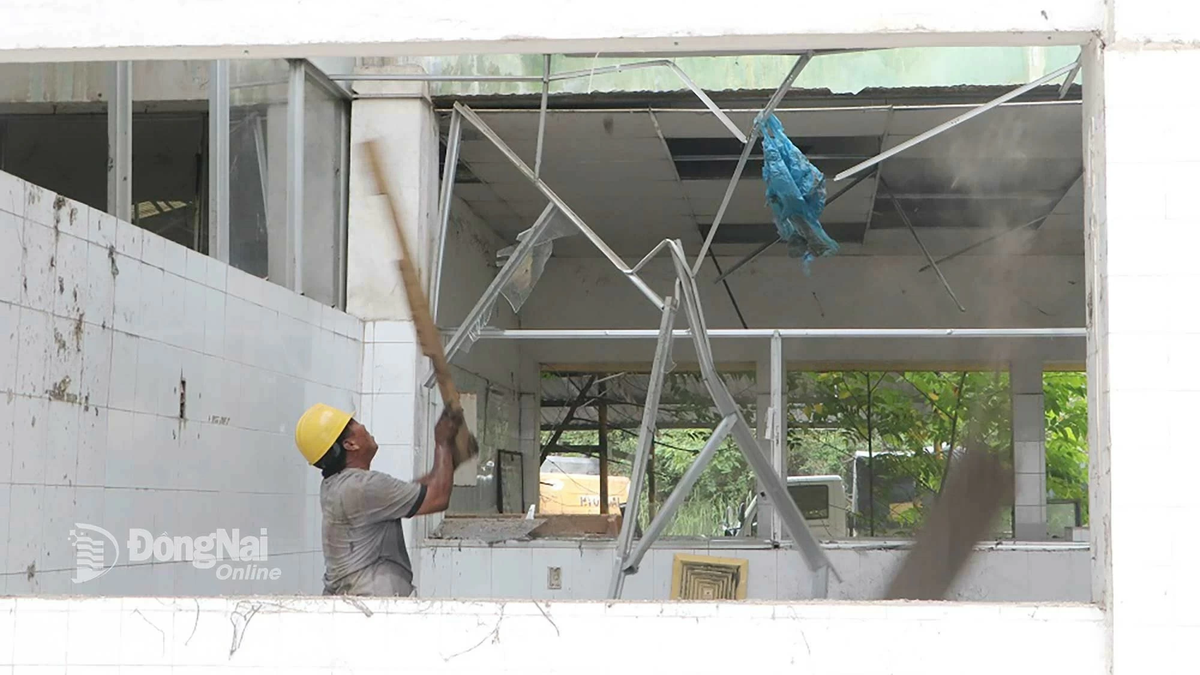New salary reform must rearrange all allowances
Discussing with National Assembly deputies at Group 15 about salary reform, Minister of Home Affairs Pham Thi Thanh Tra affirmed that salary policy reform is a major and important issue, directly related to the macro economy, economic growth and directly affecting nearly ten million cadres, civil servants, public employees, armed forces, and meritorious people. At the same time, it also directly affects many beneficiaries of social policies and about 15,000 workers in enterprises (State and private).
Therefore, when implementing Resolution 27 dated May 21, 2018 of the 12th Party Central Committee on reforming salary policy for cadres, civil servants, public employees, armed forces and employees in enterprises, Resolution No. 104/2023/QH15 of the National Assembly on the state budget estimate for 2024, the Government has prepared very carefully, cautiously, firmly, methodically and scientifically . In particular, it has assessed many related impacts when implementing salary policy reform in accordance with the content of Resolution 27.

According to the Minister, when going into the implementation of the Resolution, there are many difficulties and shortcomings. The biggest difficulty and shortcomings are the design of salary tables including 5 salary tables: Regarding leadership positions; civil servants and public employees; 3 salary tables of the armed forces as well as restructuring allowances. In addition, there are currently many allowances but the restructuring of 9 groups of allowances has many problems, as stated in the full report of the Government .
Typically, the new salary correlation is not reasonable among salary recipients. “Some subjects get a salary increase of over 30%, others get a salary increase of less than 5 - 7 - 15%, but many subjects get a salary increase lower than their current salary. Especially the salary table for positions and leadership titles. This is the biggest problem,” said the Minister of Home Affairs.
Another problem that the Minister pointed out was that when changing the structure of the allowance fund (it will be reduced by 24% compared to present) and eliminating seniority allowances for cadres, civil servants, and public employees in some specialized fields (only prescribed for the armed forces), many current allowance regimes must be rearranged into a new allowance regime, which will lead to many difficulties.
“It is very difficult to ensure the salaries of those we want to pay attention to, such as teachers and health workers. Because the current salaries of these workers are receiving very high allowances. If they work in particularly difficult areas, the allowances will be even higher. But when implementing the new salary reform, all allowances must be rearranged,” said the Minister.
In addition, another shortcoming is the construction of job positions. Although the construction of job positions has been implemented since 2012, there are still many difficulties. Recently, the entire political system has rushed to complete and approve the job position project, but in general, it has not ensured the requirements and quality. Furthermore, the Politburo has not yet issued a list of job positions in the political system, leading to difficulties in designing and constructing job positions, associated with the description and competency framework of the job position.
When implementing salary reform, Minister Pham Thi Thanh Tra noted that it is necessary to pay special attention to streamlining the organizational structure and reducing staff. Although great efforts have been made, the results have not been as expected, making it difficult to implement the two basic contents of the spirit of Resolution 27.
Faced with the above difficulties, the Government finally presented a plan to reform the wage policy in a reasonable, step-by-step, cautious, certain, feasible and effective manner. “We will do it as clearly as possible, and continue to study and improve any difficulties, problems or shortcomings, without being perfectionist or hasty, to ensure stability and ensure no disruption,” said Minister Pham Thi Thanh Tra.
Ensuring inclusive and consistent salary increases
According to Minister Pham Thi Thanh Tra, when the target of salary increase is achieved, it is necessary to ensure a comprehensive and synchronous salary increase for all relevant subjects. That is, salary increase for cadres, civil servants, public employees, armed forces and workers in the public sector, as well as the business sector and related social policy subjects. At the same time, salary reform will be implemented for the group of enterprises, specifically adjusting the salary increase by 6% for enterprises from July 1, 2024. In addition, there will be very specific instructions to implement the salary mechanism in state-owned enterprises.
For the public sector, we have implemented 4/6 basic contents such as researching to perfect the salary increase regime and allocating a bonus of 10% of the basic salary for agencies and units to periodically and suddenly reward cadres, civil servants and public employees who have excellently completed their tasks or have outstanding achievements. "This is a very new issue and the funding source for this is very large," informed the Minister of Home Affairs.

In line with this, the Government has clearly identified the sources to implement the new salary regime. With a 30% increase in the basic salary - the highest increase since the salary reform was implemented, according to the Ministry of Finance's calculations, the total funding requirement to adjust the basic salary by 30%, implement a bonus of 10% of the basic salary fund, adjust pensions and cumulative allowances for the 3 years 2024 - 2026 is 913,300 billion VND.
According to Minister Pham Thi Thanh Tra, the initial plan calculated the average total for 3 years (2024 - 2026) at about 786,000 billion. However, when implementing the adjustment of the basic salary to increase by 30%, plus a 10% bonus of the basic salary and related policies, the total funding source for salary reform will be up to 913,000 billion VND.
"Thus, the budget increased compared to the initial plan reported to the National Assembly at the 6th session by 127,000 billion VND," said the Minister of Home Affairs, and informed that in this session, he will propose to add this additional budget source to implement salary reform for 2024. Next year, he will continue to propose adjustments and additions.
The Minister also affirmed that the Government has secured funding for salary policy reform. Specifically, the Government has accumulated 680,000 billion VND and in the coming time, it will continue to make efforts to have more revenue sources to secure funds for salary reform.
The Minister acknowledged that in the coming time, economic recovery will contribute to increasing budget revenue; at the same time, inflation must be controlled. The Government has also developed very detailed scenarios to both promote economic growth, control inflation and ensure the macro economy.
Faced with concerns that if all the accumulated funds for salary reform in 3 years (2024 - 2026) are used up, where will the funds come from after 2026? The Minister of Home Affairs acknowledged that in the next period, there must be drastic solutions to ensure funding sources, including implementing savings, increasing budget revenue... At the same time, report and propose to competent authorities to adjust, supplement and amend Resolution 27 of the 12th Party Central Committee, to create a basis for implementing salary policy reform for the period after 2026.
Source: https://daibieunhandan.vn/y-kien-dai-bieu/bo-truong-bo-noi-vu-pham-thi-thanh-tra-chinh-phu-bao-dam-du-nguon-de-tang-luong-i376927/
























































![[Maritime News] Container shipping faces overcapacity that will last until 2028](https://vphoto.vietnam.vn/thumb/402x226/vietnam/resource/IMAGE/2025/7/30/6d35cbc6b0f643fd97f8aa2e9bc87aea)













































Comment (0)